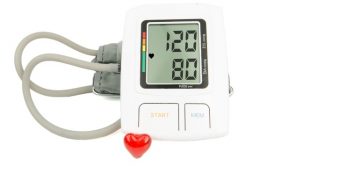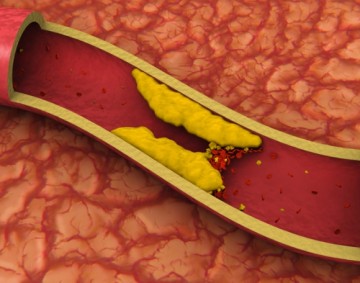By Hans Haag and Dr. Ricky Turgeon on July 5, 2023
Heart failure is the third leading cause of hospitalization in Canada and leads to readmission in 1 in 5 patients within 30 days after discharge. Iron deficiency (with or without anemia) is an important comorbidity in patients with HF and is associated with worse outcomes. Assess iron deficiency for all patients with HFrEF and HFmrEF admitted for acute HF.
By Dr. Michael Diamant on April 19, 2022
The prevalence of ambulatory patients with advanced or end-stage heart failure (HF) is increasing over time, and now comprises as much as 14% of all patients with HF. Patients may be eligible for advanced therapies, including durable mechanical circulatory support (MCS) and heart transplantation, that can change their trajectory and markedly improve long-term survival.
By Shari Hurst on April 6, 2022
There are a few tips and tricks to improve medication tolerance and adherence, and improve quality of life for patients with HF-rEF. Multiple studies have shown that a focus on patient education and empowerment along with clinical follow-up for HFrEF medical treatment improves survival, reduces hospitalizations, and improves quality of life.
By Omid Kiamanesh, MD, FRCPC on August 26, 2020
Despite intensive lowering of LDL-C using lipid-modifying therapy, residual ASCVD risk persists, particularly in those with hypertriglyceridemia. Icosapent ethyl has been shown to reduce residual ASCVD risk and cardiovascular death in select patients with hypertriglyceridemia while on statin therapy.
By Drs. Terence Yung and Tony Wan on July 24, 2018
For those who had an elective hip or knee arthroplasty who have no other risk factors for VTE, after initial 5 days of DVT prophylaxis with rivaroxaban 10mg a day, I complete the remaining DVT prophylaxis with aspirin 81mg once daily for an additional 30 days for hip arthroplasty and 9 days for knee arthroplasty. Those who already were on once-daily 81mg aspirin prior to surgery will receive 162mg aspirin once daily instead in this period.
By Drs. Christopher Cheung and Kenneth Gin on August 9, 2017
Perioperative management of anticoagulation is challenging as physicians must consider the risks of stroke, systemic embolism, and perioperative bleeding.
By Dr. Gordon Francis on April 26, 2017
High Lp(a) is a major CVD risk factor that should be measured and acted upon in patients and families where there is history of premature CV events but lack of clear risk factors, and in patients with known CVD and recurrent events despite treatment to LDL-C target.
By Drs. Terence Yung and Erin Morley on March 22, 2017
Physicians who see patients for preoperative assessment often face the dilemma of accurately determining a patients’ cardiac risk. Patients may have limited mobility and thus do not necessarily elicit cardiac symptoms even if there is significant flow-limiting coronary artery disease.
By Drs. Christopher Cheung and Kenneth Gin on June 22, 2016
Hypertension affects over 1 in 5 Canadians and is one of the leading causes of cardiovascular disease, including coronary artery disease and heart failure. Uncontrolled hypertension is a risk factor for stroke (both ischemic and hemorrhagic), retinopathy, chronic kidney disease (CKD), and peripheral vascular disease. Epidemiologic studies show that the risk of cardiovascular disease increases above a blood pressure of 115/75 mmHg.
By James McCormack on September 16, 2015
Numerous observational studies have consistently shown in many (but not all) patient populations a correlation between people with higher blood pressure, glucose, and cholesterol numbers, and a greater risk of cardiovascular events such as heart attacks, strokes, and other unwanted outcomes.
By Dr. Mustafa Toma and Dr. Christopher Cheung on May 27, 2015
There are approximately 500,000 Canadians living with heart failure, and more than 10% in patients older than 65. Up to 50% of patients presenting with signs and symptoms of heart failure will have a preserved ejection fraction (HFpEF or diastolic dysfunction). However, there is a lack of evidence for effective therapies in the management of HFpEF.
By Dr. Nadia Zalunardo on September 15, 2014
The most common cause of death among individuals with chronic kidney disease is cardiovascular disease. For most people with CKD, the risk of cardiovascular death exceeds the risk of developing end stage kidney disease.
By Dr. Natasha Press on March 5, 2014
The most recent AHA guidelines (2007) have limited antibiotic prophylaxis to those patients at highest-risk for developing endocarditis and who are undergoing high-risk invasive procedures.
By Drs. Kam Shojania and Neda Amiri on September 23, 2013
Rheumatoid arthritis has been described to be associated with an increased risk of cardiovascular disease. This risk appears to be multifactorial in nature. However, there is emerging evidence that glucocorticoids play a role.
By Dr. Jiri Frohlich on August 20, 2012
Several studies established that apo B is a better predictor of risk both at baseline and on treatment than LDL-C due to the fact that small dense LDL particles are much more atherogenic as they easily penetrate the endothelial space.
By Dr. Randall White on January 17, 2011
The evidence has become impossible to ignore that people with chronic mental illness are dying from heart attacks and strokes at a higher rate than the general population.













Recent Comments